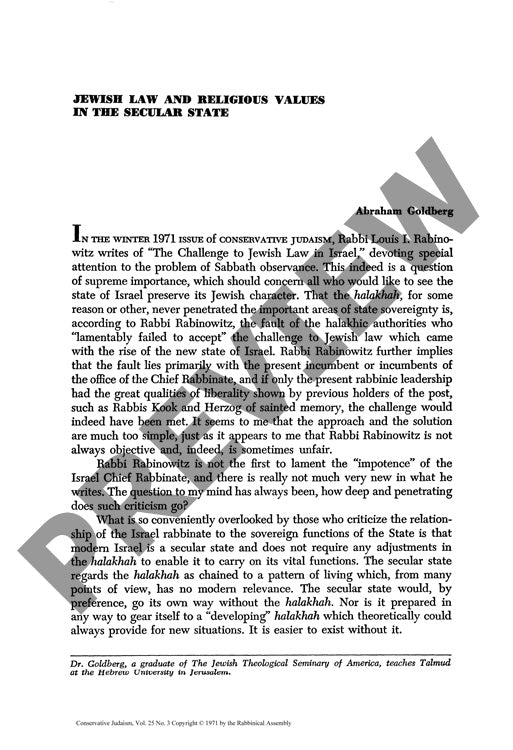Jewish Law and Religious Values in the S
Couldn't load pickup availability
The fraught relationship between Jewish religious law and Israel's secular governance challenges common assumptions about halakhah's inflexibility. Contrary to Rabbi Rabinowitz's critique of Israel's Chief Rabbinate, secular state institutions largely operate independently of religious authority rather than seeking halakhic accommodation. Analysis of Sabbath observance, kashrut, military practices, and personal status law reveals that where rabbinical influence remains strong—particularly in marriage and divorce—the religious establishment demonstrates considerable adaptability, virtually eliminating the agunah problem while maintaining liberal divorce policies within halakhic boundaries. The evidence suggests that halakhah develops most meaningfully within religious frameworks rather than when subordinated to secular authority, with current tensions stemming from state resistance to religious cooperation rather than rabbinic rigidity. Cases involving kosher food imports, military dietary requirements, and autopsy regulations demonstrate how Jewish religious values persist through political negotiation rather than formal halakhic modification. Meaningful Jewish character in Israel's secular state will likely emerge through grassroots efforts demonstrating practical compatibility between religious observance and modern economic needs, rather than through institutional religious authority or forced halakhic adaptation.

More Information
-
Physical Description
-
Publication Information
Published 1971
ISBN
-
Publication Credits
Abraham Goldberg

